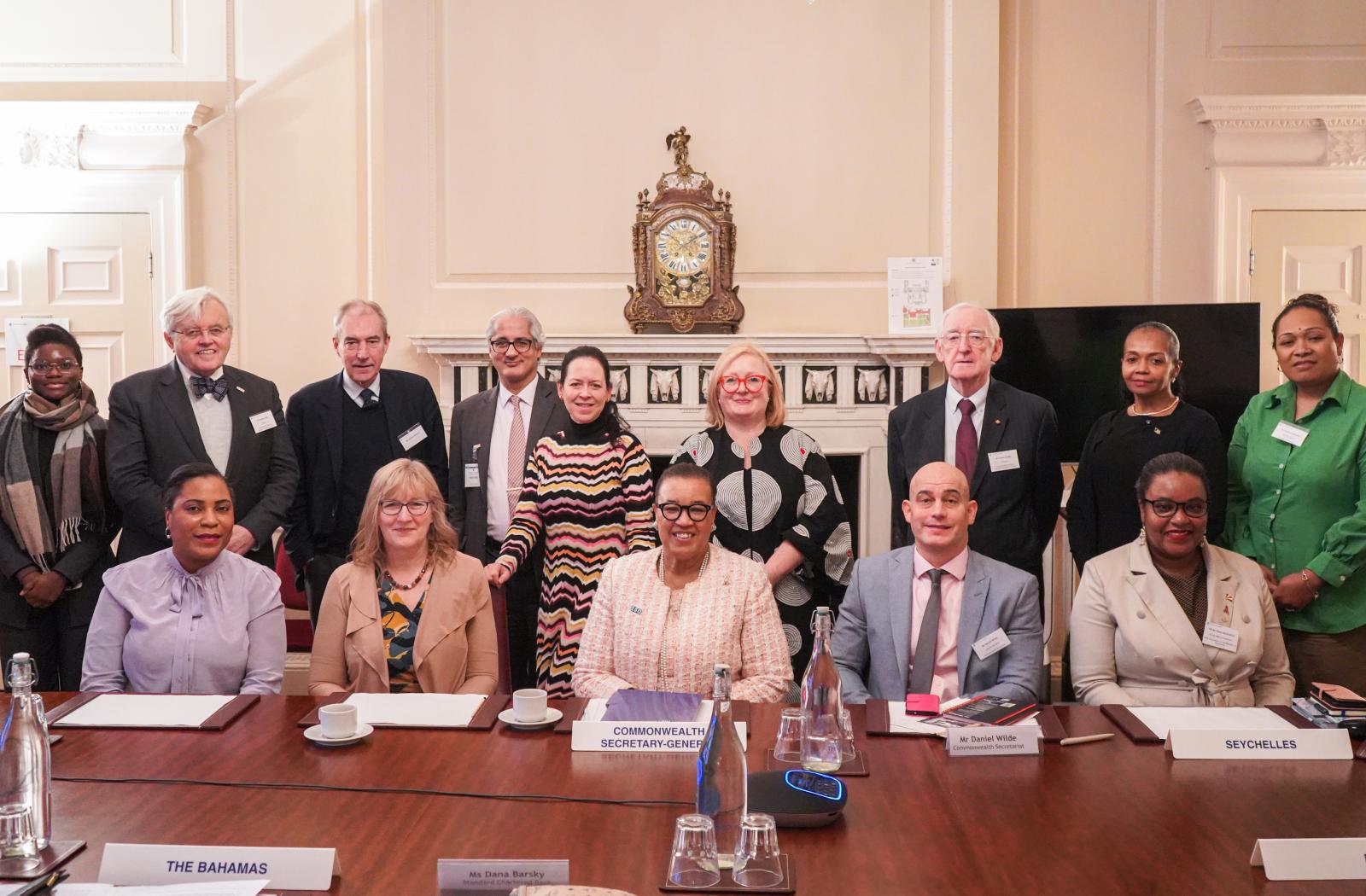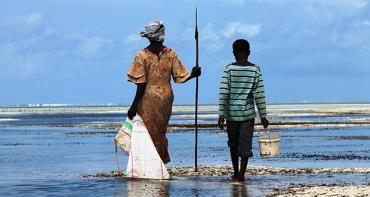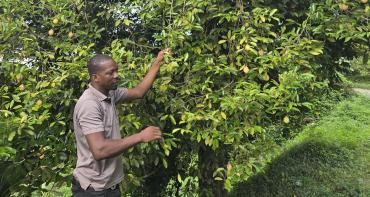This month, a group of experts, including representatives from financial and insurance companies and Commonwealth High Commissioners, met to discuss the opportunities to make Small Island Developing States (SIDS) more robust in the face of the growing climate emergency.

The roundtable discussion, hosted at the Commonwealth Secretariat’s headquarters, came at a critical juncture with climate-induced disasters intensifying.
Within the Commonwealth’s 56 member countries, 33 are small states, of which 25 are SIDS which are on the frontline of the crisis. More than three billion people live in high-vulnerability contexts - exposed to storms, floods, droughts, extreme heat and rising seas- and the frequency and ferocity of these disasters is escalating.
The scale of the effect on the growth trajectory of countries is staggering. In 2023, Vanuatu was devastated by Category 5 cyclone Lola, which hit seven months after twin cyclones Judy and Kevin had wiped out 50% of the country’s GDP. Almost one-third of Pakistan was submerged in 2022, affecting 33 million people.
As a stark reminder of what Commonwealth SIDS are facing, just last July Hurricane Beryl caused devastation across the Caribbean. Footage captured by Commonwealth Secretariat staff on the ground showing the scale of the destruction on the island was played to attendees at the roundtable.
And this had further implications for the future. For example, in the past six years, UNICEF has recorded more than 43 million weather-related displacements of children — that’s 20,000 every day.
Speaking at the event, the Commonwealth Secretary-General, the Rt Hon Patricia Scotland KC, said:
“The statistics are as sobering as they are urgent. As we speak, these numbers represent lives upended, communities fractured, and economies devastated. Commonwealth Heads of Government have made their position clear. In Apia last year, they reaffirmed their deep concern over the consequences of climate change — its impact on marine and coastal ecosystems, land degradation, and the intensifying extreme weather events which threaten our communities.”
“That is why, at CHOGM 2024, we launched the Commonwealth Disaster Resilience Centre — an innovative, digital platform providing member states with real-time data, climate finance pathways, and best-practice case studies drawn from local expertise and indigenous knowledge. It is a bold step, but not our last.”
Research has shown that investment in disaster preparedness is much less expensive than the funds needed for post-disaster recovery. The facts alone are a strong argument for this investment in a resilient future.
Reaching that point requires ambitious, scalable, and inclusive solutions, for example, financial instruments that de-risk investments in climate adaptation or insurance models that protect the most vulnerable, not just offer the most returns.
It may also include proactive private sector and other partnerships that will work with governments, civil society, and local communities to build resilience before disaster strikes. This partnership model is something the Commonwealth Secretariat has championed throughout its history.
As the Commonwealth Secretary-General concluded:
“When one of us is hit by disaster, it is not just their loss — it is our collective loss: so our response must be collective. We have done this before, and we will do it again.”
Media contact
-
Ben Maloney Senior Communications Officer, Communications Division, Commonwealth Secretariat



